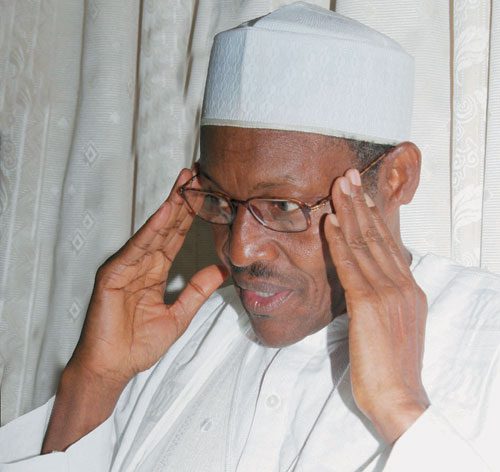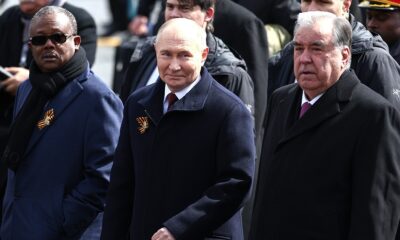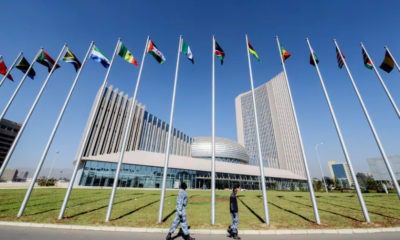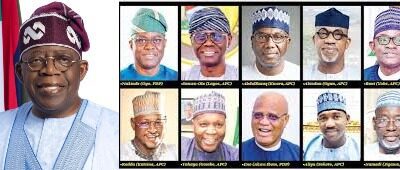National Issues
The Immediate Task Before President Muhammadu Buhari -By Idris Akinbajo

When you are sworn in as Nigeria’s president on May 29, 2015, you will be saddled with leading a divided, disjointed, unsafe, economically weak, and virtually impoverished country. The task before you is arguably tougher than what Barack Obama had to face in his first election as America’s President after the disastrous years of the George Bush presidency. With Nigerians divided along ethnic and religious lines perhaps more than ever before, a wobbling ‘federal’ structure showing the inability of most federating units to function, security of lives and property across Nigeria at one of its lowest ebb, an oil-dependent economy in doldrums due to corruption and the fall in global oil prices, and more than 50 percent of the population living below the poverty line, you sure have an unenviable task. A large part of the challenges may have been caused by the actions and inactions of the outgoing President Goodluck Jonathan, but your performance in office, just like Obama’s, will not be judged by the action(s) of your predecessors, but by your own actions while in office.
While not elaborating on individual sectors of the Nigerian economy, and irrespective of the knowledge that you contested on the platform of a party that has its own manifesto, I believe that there are five areas a Buhari presidency should consider focussing on.
Ethnic and Religious Division
If anyone needs evidence of the extent of ethnic and religious polarisation in Nigeria, all the person needs do is to study the pattern of voting in the 2015 elections, both across and within states. That the new president will be presiding over a divided country is not in doubt, what people will monitor is how much efforts you will put into uniting and creating a truly Nigerian nationality and not ethno-religious nationalities as currently is the case. You may not be able to change the actions of the outgoing administration that helped worsen the divide, but from your first day in office, you must ensure you take no action that will further divide Nigeria. The principle of justice and fairness upon which you campaigned must be held as foremost. The federal character principle that has allowed mediocrity and incompetence take charge of important sectors of Nigeria’s public polity must be debated and revisited. If unity is to be promoted and encouraged, then the president must see all Nigerians as equals and ensure all Nigerians have equal chances at public institutions and benefits based on skills and competences and irrespective of where they come from or the God they serve. Challenges that exist in particular areas should be resolved but not at the detriment of other areas. Muhammadu Buhari must realise that governing Nigeria is not a zero sum game and must aggressively pursue uniting the country.
Nigeria’s Structure
This was separated from ethnic and religious divisions because, among others, one can be resolved without the other. Nigeria cannot progress with the current structure where states as federating units run cap in hand to Abuja every month to collect money that would make their states function. The most successful countries in the world are those that practise true federalism, albeit in different forms.
I know that the call for true federalism was virtually jettisoned by many of its adherents to allow the formation and success of your All Progressives Congress, APC. I also know that some of your core supporters, perhaps including yourself, do not believe in true federalism out of fear it would negatively affect a section of the country. But a comparison of Nigeria’s growth and development when it practised true federalism in the late 50’s and early 60’s to the current unitary structure imposed by the military shows the former would lead to a more successful country. The fears of negative impacts of true federalism on a section of the country is addressed in various documents on the topic, including that by the Afenifere Renewal Group, ARG, and also the report of the last National Conference. Would you like to be remembered as a president who tried his best to make the country, as it is, work or as one who put in place a better structured and more efficient Nigeria? Do you really believe that a presidential system that allows corrupt moneybags and public officials bankroll elections is what Nigeria needs? I’m sure you know that some governors and other persons had to use state funds and other public resources to bankroll your election without which your campaign would not have been able to match that of the outgoing government that used the country’s virtually unlimited federal resources. Should that continue to repeat itself? Only a restructuring of Nigeria’s political and economic system can put a stop to that. But the question is, would you be bold enough to help restructure Nigeria?
Security of Lives and Property
From the Boko Haram insurgency in northern (mainly north-eastern) Nigeria, to ethno-religious crises in the north-central and north-eastern states, to the seemingly unstoppable high rate of kidnapping in the south-south and south-east, and several other acts of insecurity across the country, the last few years have been some of the worst for Nigerians. As the new president, you must act fast to check the situation. Hopefully your military background will help in this aspect. While appropriate attention should be paid to the military and other security outfits, perhaps the one most desirous of urgent attention is the police which is primarily responsible for the maintenance of law and order in the country. The Nigeria Police Force should be adequately reformed. Attention should be paid to police welfare, training and equipment. A well motivated, trained and equipped police would ensure that our military is restricted to its primary task of protecting the country’s territorial integrity. Just as the police is reformed, the judiciary also needs to be for the efficient security of lives and property. Should you decide to support the restructuring of the Nigerian polity as suggested, then entrenching state/regional and community policing, as well as efficient and independent state/regional and local judiciaries would also help. Since the basic essence of governance is the security of lives and property, then you must consider this as a priority.
The Economy
President Buhari, you must learn from the current fall in global oil prices. With the US’ shale oil and increased diversification to sustainable energy in the developed world, your coming government must make a more deliberate effort to diversify the Nigerian economy away from oil and oil related rents. In all fairness to the Jonathan administration, he did try to do this via agriculture and increased manufacturing, but the primary things needed to make this work were not present. Importantly, power (electricity distributed to the over 150 million Nigerians never went beyond 5,000 MW during the Jonathan presidency) never really improved during the Jonathan administration while Nigeria, as Africa’s largest oil producer, continued to import refined petroleum products. Concrete efforts must be made to address this. More refineries should be built either directly by the government or through private partnerships with the private sector and interested countries. Existing ones should be repaired urgently. For power, in the short term, the sabotage of gas pipelines that fuel the gas-powered electricity generating plants must be stopped. If that alone is achieved in a few months, power generation could go up as high as 7,000 MW on the short term, while more power plants should be built by the government and private investors encouraged to do same. Some states and businesses have refused to be involved in the privatisation of power because of the non-decentralisation of the Transmission system that requires all electricity generated across the country to be sent to the TCN which then distributes based on idiosyncrasy to different parts of the country. This must be revisited. Sustainable electricity, particularly solar and wind, should be highly promoted by government, as technologies for these already exist and are improving. Nigerians will watch if you implement these and the various economic policies that your party promised during the campaigns.
People Empowerment/Job Creation
I decided to separate this from the economy because, among others, we have learnt from the Jonathan administration that the economy can grow without a corresponding improvement in the standard of living of the people. No matter how strong an economy is, if people are not adequately employed, taken care of, and able to take care of their basic needs, then the government has failed. I’ll focus on three categories of people for this: (i) retired civil servants (ii) unemployed graduates (iii) students.
The conditions (aged) pensioners are made to go through in Nigeria is harrowing. No country can treat its retired workforce the way we treat ours and expect progress, because, among others, those still working only need to look at their predecessors for reasons to be corrupt. The pension offices must be adequately staffed and workers well trained. The rights and entitlements of retirees must be paid promptly and they must not be made to go through the terrible experience of travelling hundreds of kilometres and queueing under the sun for several hours just to be verified due to no fault of theirs, with some of them losing their lives in the process. Should any form of verification be required, the burden should be transferred to the pension offices who failed to keep adequate records and not to the aged retirees. These can be easily achieved.
I am one of those who believe that Nigeria needs a real biometric census. I mean nobody really knows the true population of Nigeria or any part thereof. How can you really plan for people without knowing their numbers, where they live, their age and so on? While this must be done as soon as possible, the data of graduates is not difficult to come by. Millions of jobless unemployed graduates, many of who spent a full year of their lives serving the country under the National Youth Service Corps (NYSC) scheme should not be left alone without any social benefits. While the government puts in place policies that will create more jobs, concrete social welfare programmes can be put in place for unemployed graduates.
In a country where the minimum wage is barely enough to keep a person alive, talk less of one with a family, the various fees demanded from students in public schools is outrageous. This is made worse if one considers that there are no available student loans as obtained in capitalist economies to cushion the effect of higher education. I am an advocate of free education at all levels, as I believe Nigeria can fund it. However, while the economy many not be able to at the initial stage, President Buhari can at least ensure no student pays a dime extra, under whatever name, than was obtained before he is sworn in as president.
The Immediate Future
Having read, heard, reported and written extensively on corruption among Nigerian officials, I believe that corruption is the main hindrance to Nigeria’s growth. But in the awareness that the fight against corruption is the major fulcrum upon which Mr. Buhari campaigned, we look forward to how he takes on this hydra-neaded monster, on which I would subsequently in a coming part of this piece.
Whether the advice above and those proffered by other Nigerians prove useful to the elected president, one thing he must always remember and which his election has thought us all is: there will always be a day of reckoning, whether sooner or later.
Idris Akinbajo is the Head of Investigations at Premium Times


















